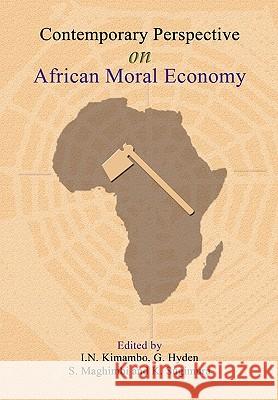Contemporary Perspectives on African Moral Economy » książka
Contemporary Perspectives on African Moral Economy
ISBN-13: 9789976604658 / Angielski / Miękka / 2008 / 240 str.
The topic of African moral economy was first raised by Goran Hyden in 1980 as one of the main obstacles to economic transformation of the African peasantry. The suggestion caused serious academic debates between the proposer and other scholars on African societies, especially those using political economy as the framework of their analysis. But Hyden continued to defend his thesis until interest in the debate faded out. More recently Japanese scholars have taken up the topic as it appears to have new relevance in comparison with the fast transformations which have taken place in Southeast Asian rural communities. The focus of this book is to give a detailed comparison between African rural communities and those of Southeastern Asia. Attention is focused on the two main aspects of African peasantry life: the right to subsistence and the norm of reciprocity. A wide interdisciplinary approach is employed to demonstrate the dynamism displayed by these societies.
The topic of African moral economy was first raised by Goran Hyden in 1980 as one of the main obstacles to economic transformation of the African peasantry. The suggestion caused serious academic debates between the proposer and other scholars on African societies, especially those using political economy as the framework of their analysis. But Hyden continued to defend his thesis until interest in the debate faded out. More recently Japanese scholars have taken up the topic as it appears to have new relevance in comparison with the fast transformations which have taken place in Southeast Asian rural communities. The focus of this book is to give a detailed comparison between African rural communities and those of Southeastern Asia. Attention is focused on the two main aspects of African peasantry life: the right to subsistence and the norm of reciprocity. A wide interdisciplinary approach is employed to demonstrate the dynamism displayed by these societies.











